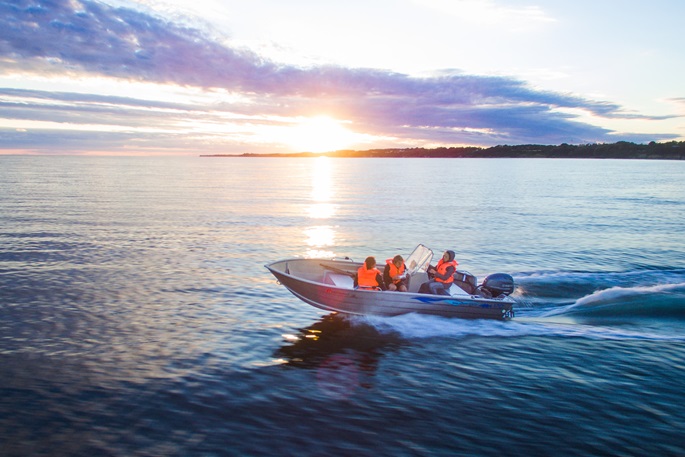Come home safe. That’s the message from the Safer Boating Forum partners, who want every recreational craft user to put steps in place to make sure they return home from their time on the water with good memories – not injuries or fatalities.
The annual Safer Boating Week is about getting safety to the forefront of the minds of recreational craft users as they start gearing up to get back on the water.
Maritime NZ’s research shows that on average 18 people die every year in recreational craft incidents.
Over the last few months’ there have been several fatal recreational craft incidents. These have occurred all over New Zealand.
As of October 15, there have been 10 separate events where 14 people have died or gone missing. Over the past decade, more than 170 people have lost their lives in recreational craft incidents.
“This is a sobering statistic, and one that the Safer Boating Forum and members are dedicated to bringing down,” said ACC injury prevention leader James Whitaker.
“We know the Safer Boating Forum members span right across the recreational craft space, from jet boating through to stand-up paddle boarding, and each activity has its own risks to manage.”
Through Maritime NZ’s community grant funding, organisations all over the country are running programmes to bring down instances of harm.
“In the past two years we saw fatal incidents occurring on powerboats, dinghies, kayaks and jet skis, and it’s important a targeted approach is taken to preventing harm on recreational crafts.”
Victoria Slade, Maritime NZ Harm Prevention Lead – Recreational Craft, said almost all of the fatal incidents in 2023 occurred one nautical mile from shore, or on lakes and rivers.
“It doesn’t matter whether you’re close to shore, tragedy can strike anywhere. That’s why it’s critical to prepare before heading out onto the water,” said Slade.
“If you’re planning to head out on the water, make sure to check the marine weather forecast, take two forms of waterproof communication to call for help, and always wear a properly-fitting lifejacket.”
Approximately 1.7 million people in New Zealand undertake activities on the water each year.
In 2023, ACC accepted 4,148 water-related injuries for recreational craft activity. These injuries cost $13.5 million to help people recover.
January is consistently the month with the largest number of water-related injuries on recreational craft with 1,066 injuries in 2024.
Whitaker says Safer Boating Week is an opportunity to be more mindful of the risks in and around the water.
“A drowning is a devastating event for any whānau and community, and our hearts go out to every family who has lost a loved one,” Whitaker said.
“Most of these tragic drownings are preventable if we take the time to consider the risks.”
Whitaker said getting out on the water is a key part of life in New Zealand in summer.
“We want people across Aotearoa to enjoy the water this summer with their friends and whanau,” he said. “It’s one of the best things about living in this country that our oceans, rivers and lakes are accessible and a playground for all.
“But we all need to be well informed about the risks, understand what can go wrong, so we come home safe to our loved ones.”
Safer Boating Week – tips from Maritime NZ
- Safety First: Always prioritise safety on the water. Ensure your boat is equipped with all necessary safety gear and that everyone on board knows how to use it.
- Life Jackets Save Lives: Make wearing a correctly fitted life jacket a non-negotiable rule for everyone on board. It’s a simple step that can make a huge difference!
- Stay Sober: Avoid alcohol and drugs while boating. Impaired judgment can lead to accidents and endanger lives.
- Weather Awareness: Check the marine weather forecast before heading out and be prepared for sudden changes. If in doubt, don’t go out!
- Communication: Always let someone know your boating plans and expected return time. Carry two forms of waterproof communication, such as a VHF radio, a fully charged mobile phone or distress beacons so you can call; for help if required.
- Know the Rules: Familiarise yourself with local regulations and navigation rules to ensure a safe and enjoyable trip.
- Regular Maintenance: Keep your boat in good working condition with regular maintenance checks. A well-maintained boat is a safer boat.
- Continuous Learning: Take a boating safety course to stay updated on best practices and new safety regulations.
For more information visit: https://saferboating.org.nz/



0 comments
Leave a Comment
You must be logged in to make a comment.